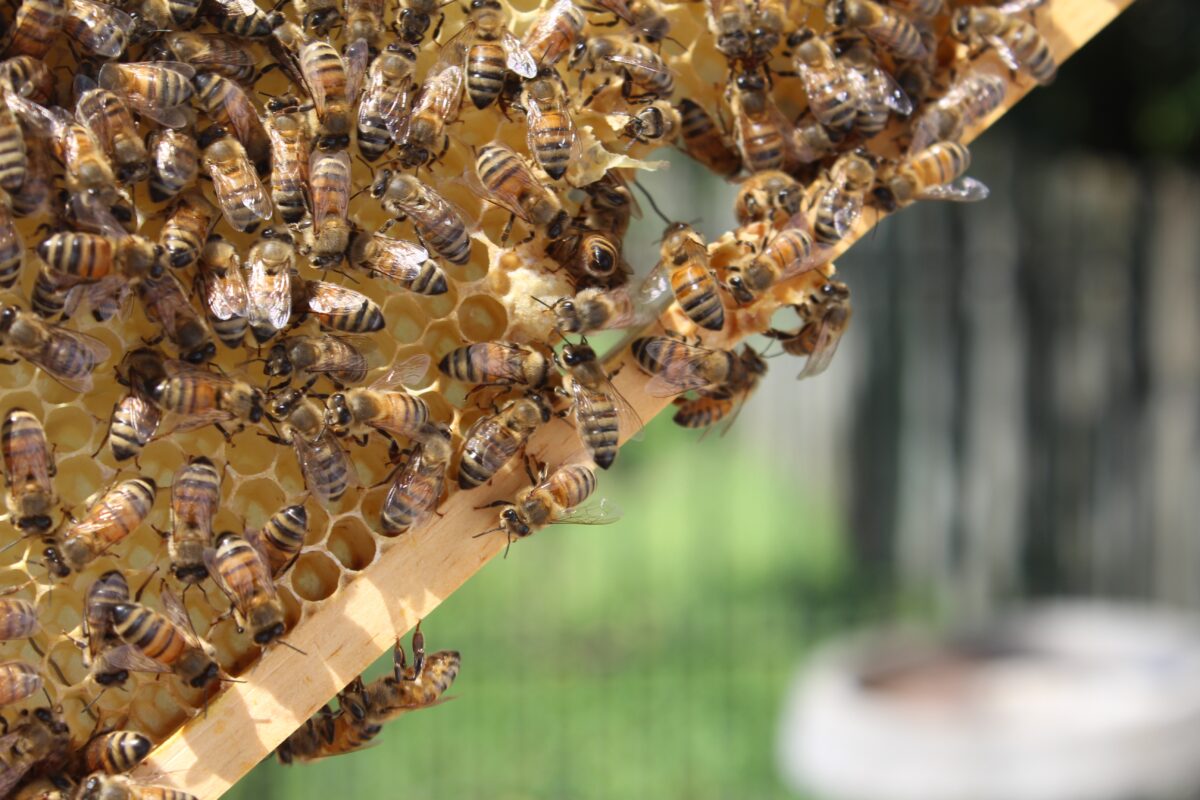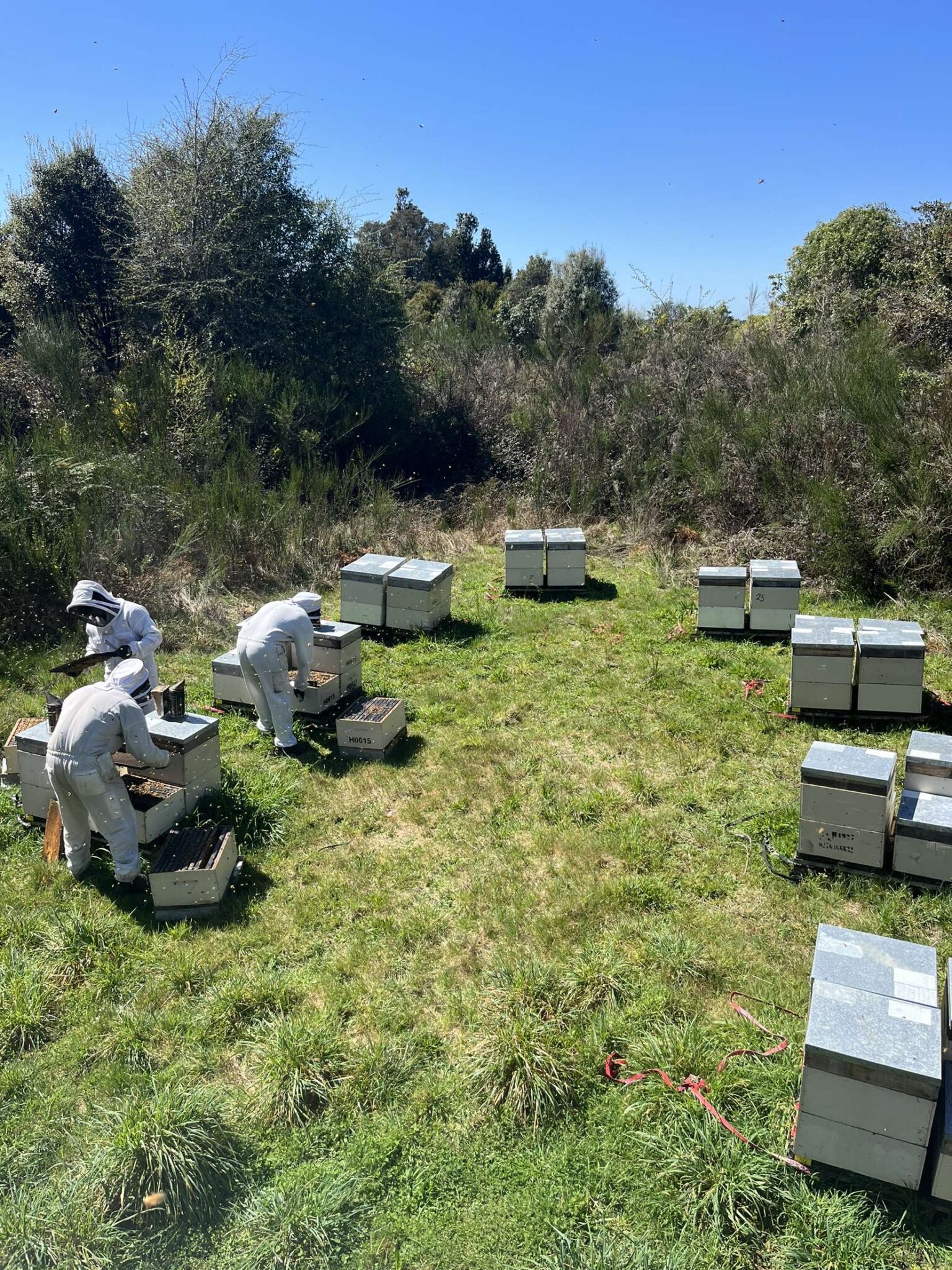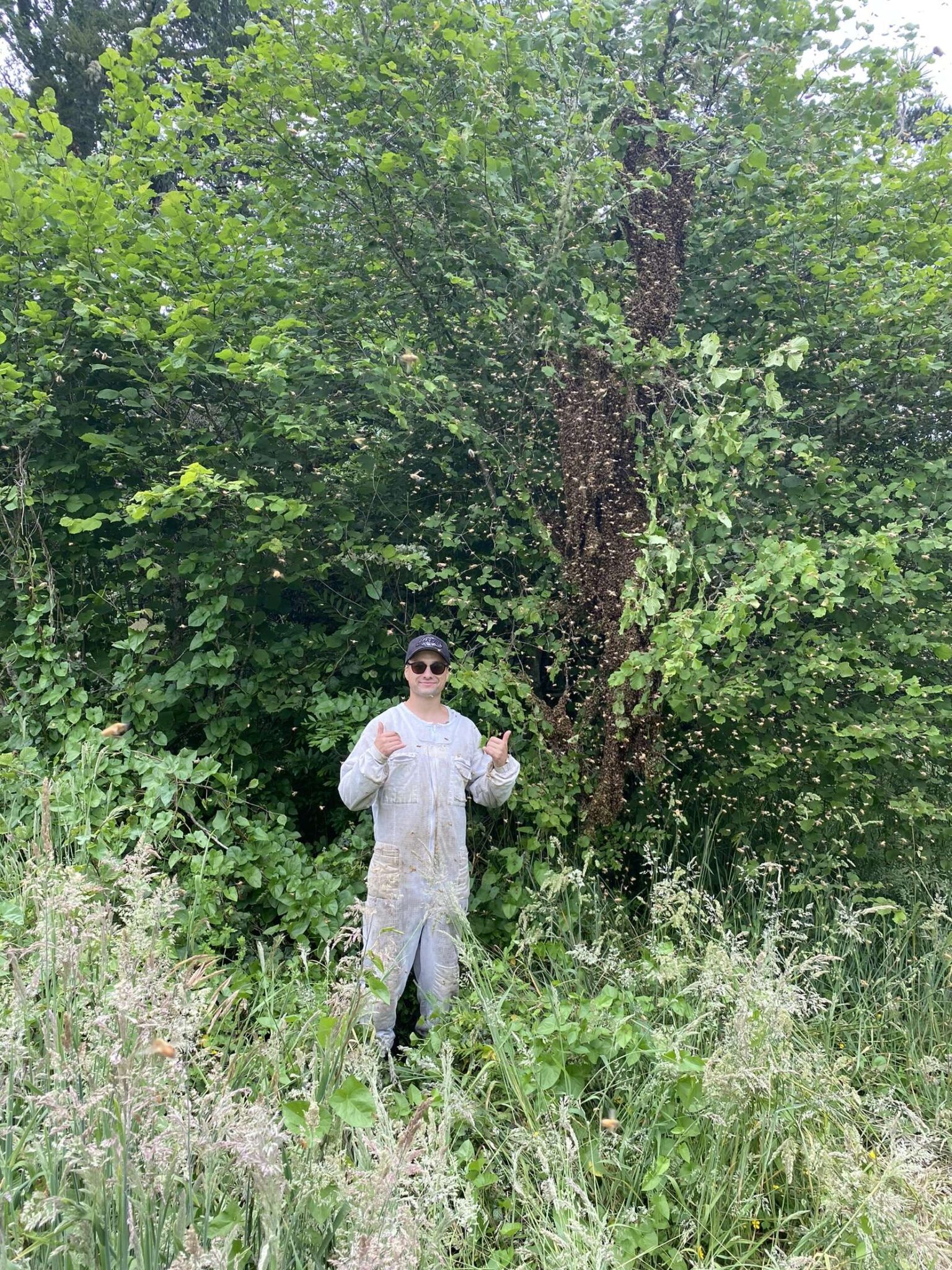Bee your own keeper

- Written by
- Abby Beswick
Home & Garden
Beekeeping – commercial and hobbyist – is on the rise in New Zealand. The number of registered hives has climbed from 500,000 in 2014 to 632,000 in 2023, according to the Ministry for Primary Industries.
In particular, it seems more and more Kiwis are taking up this hobby, with 75% of all registered beekeepers in the country owning less than 10 hives.
But how easy is it to make your own honey and why is there such a wide interest in it?
 Smoking Joes beekeepers working at one of their sites.
Smoking Joes beekeepers working at one of their sites. The benefits of bees
It’s a well known fact that bees are essential to people and the planet.
Each year these busy workers pollinate billions of plants and in doing so play a key role in every aspect of the ecosystem.
The movement of pollen between plants is necessary for plants to fertilise and reproduce. So without them, many plants we rely on for food would die off.
Bees also provide us with honey, which has a huge range of uses, from a natural sweetener, to medicinal uses and beauty treatments, as well as a number of other products including, royal jelly pollen, beeswax, propolis and bee venom.
Threats
Bee populations have plummeted around the world in recent years, with pesticides, pollution and habitat loss all contributing to the decline.
In NZ, thousands of bee colonies have been lost recently, largely due to varroa mite infestation. This mite was first detected in NZ in 2000 and has since spread throughout the country.
These tiny parasites mainly feed and reproduce on bee larvae and pupae, causing weakening of the bees and transmitting viruses.
Left untreated, varroa can quickly spread throughout a hive and eventually kill the colony.
Beekeepers use a number of effective methods to control and prevent varroa mites in their hives.
How to become a beekeeper
If you’re interested in becoming a beekeeper, you’re not alone. Beekeeping is a popular pastime in NZ, with a growing number of people setting up backyard hives and reaping the sweet rewards.
For many people, beekeeping comes from a desire to grow their own food, while others simply want to learn more about these fascinating insects. Whatever your reasons, there’s a lot more to this hobby than simply setting up a hive in your garden.
Looking after hives and extracting honey is a complex process that requires education and experience. The best way to get started in beekeeping is to visit a beekeeping club or learn from someone experienced.
It’s particularly important to learn about: looking after bees, keeping bees from pests and diseases, food safety and legal requirements. For more information about getting started go to www.mpi. govt.nz and new to beekeeping
 Beekeeper - Chris Giddens
Beekeeper - Chris Giddens A life with bees
Taupo man Chris Giddens has worked in the commercial bee industry for more than a decade and can’t imagine doing anything else. Giddens stumbled into beekeeping at age 16 when he left school.
The teenager asked for a job at Tweeddale’s Honey in Taihape – one of the biggest bee companies in NZ.
He first got a job in the extraction plant, before moving onto other aspects of the business.
Being active, working outside and developing his skills were a big attraction, he says.
Three years later, Giddens moved to Taupo and returned to beekeeping after a brief stint as a truck driver. His passion for beekeeping has continued to grow ever since.
“The more I got into it, the more I learnt, the easier it got – looking after the hives, the processes and everything that goes into it. I do love bees.”
Giddens now works as a team leader at Smoking Joe’s Honey where he looks after 1300 hives. He’s also a hobbyist beekeeper, with 60 hives at home, which produce Manuka honey that he sells and gives away to happy family and friends.